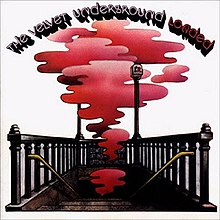Loaded (The Velvet Underground album)
| Loaded | ||||
|---|---|---|---|---|
 |
||||
| Studio album by The Velvet Underground | ||||
| Released | 15 November 1970 | |||
| Recorded | April–August 1970 | |||
| Studio | Atlantic Recording Studios, New York City, United States | |||
| Genre | ||||
| Length | 40:35 | |||
| Label | Cotillion | |||
| Producer | Geoff Haslam, Shel Kagan, The Velvet Underground | |||
| The Velvet Underground chronology | ||||
|
||||
| Singles from Loaded | ||||
|
||||
| Professional ratings | |
|---|---|
| Review scores | |
| Source | Rating |
| Allmusic | |
| Blender | |
| Chicago Tribune | |
| Robert Christgau | A |
| Pitchfork | (10/10) |
| Rolling Stone | (favorable) |
| Rolling Stone Album Guide | |
Loaded is the fourth studio album by American rock band the Velvet Underground, released in November 1970 by Atlantic Records' subsidiary label Cotillion. It was the final album recorded featuring founding member and main songwriter Lou Reed, who left shortly before its release.
In 2012, Loaded was ranked 110 on Rolling Stone magazine's list of the 500 greatest albums of all time.
Loaded was a commercial effort aimed at radio play, another step away from the Warhol-influenced experimental days of their earlier albums. The album's title refers to Atlantic's request that the band produce an album "loaded with hits". Singer/bassist Doug Yule said, "On Loaded there was a big push to produce a hit single, there was that mentality, which one of these is a single, how does it sound when we cut it down to 3.5 minutes, so that was a major topic for the group at that point. And I think that the third album to a great extent shows a lot of that in that a lot of those songs were designed as singles and if you listen to them you can hear the derivation, like this is sort of a Phil Spector-ish kind of song, or this is that type of person song."
Reed was critical of the album's final mix. He left the Velvet Underground on August 23, 1970, but Loaded wasn't released until three months later, in November. After its release, Reed maintained in interviews that it had been re-edited and resequenced without his consent.
One of Reed's sore points resulting from that unauthorized re-editing was that the "heavenly wine and roses" melody was cut out of "Sweet Jane". In the original recording, this part was intended to provide a perfectly flowing bridge to a full-fledged plagal cadence two-chord version of the chorus (earlier choruses in the song have a 4-chord riff). In Reed's initial solo performances, he would include the verse (see for instance American Poet), until 1973, when he would routinely leave it out, as the bridge fits less well in a more hard rock version (as heard for instance on Rock 'n' Roll Animal). However, the post-Reed, Doug Yule-led Velvets always performed the song with the verse included. A career-spanning retrospective of Reed's recordings with the Velvet Underground and as a solo artist, NYC Man (The Ultimate Collection 1967–2003), which Reed compiled himself, uses the shorter version. When asked about the shortened versions of "Sweet Jane" and "New Age" and Reed's long-standing claims that they were re-edited without his consent, Yule claimed that Reed had in fact edited the songs himself. "He edited it. You have to understand at the time, the motivation was... Lou was, and all of us were, intent on one thing and that was to be successful and what you had to do to be successful in music, was you had to have a hit, and a hit had to be uptempo, short, and with no digressions, straight ahead basically, you wanted a hook and something to feed the hook and that was it. 'Sweet Jane' was arranged just exactly the way it is on the original Loaded release exactly for that reason—to be a hit! 'Who Loves The Sun' was done exactly that way for that reason—to be a hit."
...
Wikipedia
